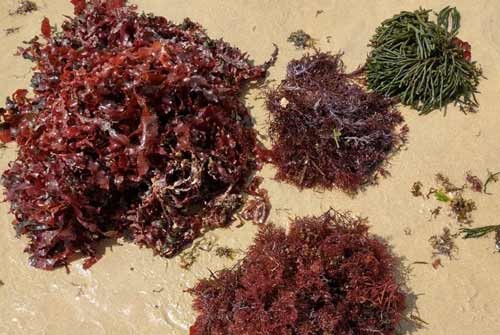News Items - International Association of Packaging Research Institutes
| Fraunhofer IVV works on seaweed-based films and coatings Germany’s Fraunhofer IVV has reported on the recently-completed ACCEPT joint research project, which looked at methods for extracting polysaccharides from seaweed for potential applications in food production, biotechnology – and packaging. ACCEPT was a CORNET project where Fraunhofer worked with the German Industry Association for Food Technology and Packaging, as well as with Brazilian partners, including the ITAL food technology institute. The project ran from the start of 2021 to the end of 2022. As Fraunhofer explains, coatings made from algal polysaccharides were already known to improve the barrier properties of substrates against oxygen. Seaweed-derived packaging and coatings, it adds, have the advantage of being biodegradable and offer overall techno-functional properties that are comparable to conventional food packaging.  In Germany, the collected seaweed was put through a fractionated extraction process which, Fraunhofer spokeswoman Susanne Liebing tells IAPRI, delivered an “acceptable” yield. “The process consists of several aqueous extraction steps,” she adds. “Within this frame, we obtained different fractions with promising functional properties.” In Germany, the collected seaweed was put through a fractionated extraction process which, Fraunhofer spokeswoman Susanne Liebing tells IAPRI, delivered an “acceptable” yield. “The process consists of several aqueous extraction steps,” she adds. “Within this frame, we obtained different fractions with promising functional properties.”Cast films and paper coatings were produced from the extracts obtained. Different cross-linking methods were trialled to improve oxygen barrier and decrease moisture sensitivity. Other tests looked at the effects of altering the viscosity of the formulation and the type and quantity of plasticizer used. Top coatings were also investigated with a view to protecting the phycocolloid layer from moisture and so maintaining its functionality. With this type of protection, the coatings offered a very good grease barrier, says Fraunhofer. “Depending on the results, scale-up is possible,” says Liebing. “If it is possible to get new funding, we will follow this route.” As well as ITAL, Brazilian partners on the project included Companhia das Algas, Univsidade de São Paulo, Universidade Estadual Paulista and an array of small-to-medium-sized businesses. The seaweed samples were collected in Brazil, where some were tested as a natural pesticide on crops. Published: 07/31/23 |